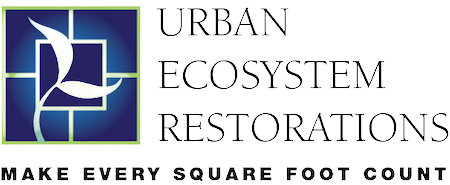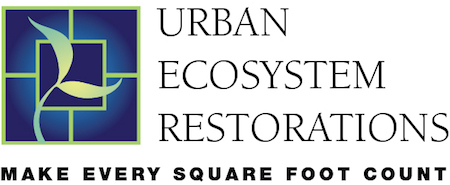UER’s mission and work are grounded in 5 core operating principles that run counter to traditional thinking in the real estate and land use planning industries — thinking that has held sway for the last 60-100 years. This disconnect can create a high hurdle to accomplishing our vision, but the belief system that has produced some of the largest environmental challenges of the 21st century cannot produce the cure for them.
We must rethink our fundamental assumptions about what urban space should look like, and what it means for dense populations to live in concert with nature and Earth systems.
The following 5 principles reflect that kind of new thinking, and they drive UER’s methods — methods that seek to achieve environmental, social, and economic outcomes that allow for a truly sustainable and meaningful quality of life for our children and future generations:
- Nearby Nature (as replicated by Eco-Functioning Spaces) is a fundamental urban land use that people must prioritize and expand on both public and private lands.
- We must create or restore Nearby Nature (or Eco-Functioning Space) in a way that also restores or regenerates the organic, self-sustaining system operations and ecological cycles.
- Restoring Nearby Nature on privately held lands is as, or more, important than doing so on publicly held lands, and there is a business case (market justification) for doing so, if the Eco-Functioning Spaces are designed and managed correctly.
- Eco-Functioning Spaces on private lands need long-term protection and maintenance that intentionally maximize environmental function and economic value and that transcend temporary preference shifts in aesthetics or environmental priorities.
- When well-managed, conservation land trusts are the best-suited entities to protect and maintain oversight of EFS on private lands (in part because it’s what land trusts do). These NGO’s have fewer competing social priorities and more flexibility to aggregate funds and adjust to the variable needs of different private partners than governments do. They are also more service-oriented than most government agencies and more experienced at cultivating positive relationships with landowners. And these NGOs are created to continue on for decades into the future — beyond ownership transfers and with a singular, mission-driven purpose that can remain true to environmental and social goals, as well as economics.
Let us know what you think about these principles. Send an email (to rachel@urbanecosystemrestorations.org) or post a comment. Do you agree or disagree with these principles and why? We want to start a conversation — so please join us!

